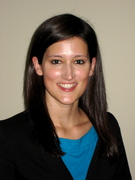Why is it that when we think of eating disorders, we think of Mary-Kate Olsen's protruding clavicles or Nicole Richie's gaunt frame? While the majority of sufferers are, in fact, young women under the age of 25, there is a whole other cohort of women--the midlife victims--for whom anorexia and bulimia are huge, often under-recognized problems.
In a recent study in the International Journal of Eating Disorders, researchers confirmed that the very same eating disorders that affect young teens and waify supermodels also exist well into adulthood.
The difference between the generation gap is that older women appear to present with significantly higher rates of depression and other psychiatric disorders.
Using national eating disorder center databases, the research group polled 32 women over age 50 who had been diagnosed with an eating disorder in the last 10 years. Only 11 women agreed to participate, making the study limited in numbers, but certainly not in importance.
All women reported that their eating disorders began before age 25, with the majority of them beginning in puberty. Interestingly, they also reported feeling discriminated against by eating disorder programs--services often geared towards teens and younger women.
Because eating disorders like anorexia nervosa and bulimia are chronic, often relapsing disorders, it might be necessary for treatment and follow-up to continue through adulthood, when new stressors like divorce, aging parents and menopause can emerge.
Anorexia surrounding menopause can be particularly troublesome. Estrogen, already lowered by the menopause itself, takes an even greater dive when fat cells (suppliers of estrogen) disappear. This double whammy puts women at greater risk for osteoporosis and bone fractures among other issues.
While details about eating disorders in later life and in menopause specifically are still limited, there appears to be proof of its existence through smaller studies such as this and through individual testimonies.
We can thank Oprah Winfrey, Wynonna Judd and Sharon Osbourne--celebrities who have all courageously spoken up about their eating disorders--for putting a face to this rarely quantified problem.





Add a Comment1 Comments
All of my life I've had a problem with eating. This dates back to my primary school age when I actually had a teacher assigned to me to make sure I'd eat lunch. I rarely ever feel hungry and its only been when I feel weak or dizzy that I realize I need to eat something. I now suffer from osteoporosis, osteoarthritis, an under-active thyroid, moderate depression and fatigue. I'm also nearly 70. Does my life time lack of appetite contribute to my current health problems? Also why is it that I so rarely felt hungry?
April 7, 2010 - 11:09amThis Comment